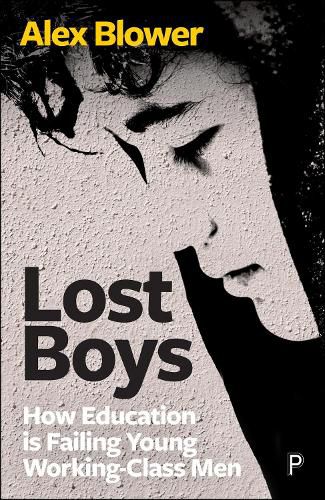Readings Newsletter
Become a Readings Member to make your shopping experience even easier.
Sign in or sign up for free!
You’re not far away from qualifying for FREE standard shipping within Australia
You’ve qualified for FREE standard shipping within Australia
The cart is loading…






Since the mid-2000s, consistent commentary from politicians and media outlets in the UK have presented low educational attainment and low aspiration as defining attributes of working-class boys in education. It has often characterised them as misogynistic, aggressive and unwilling to learn. But how true is this?
Combining research, real-life case studies and the author's experience of navigating school exclusion, this book provides clear recommendations for how to better support the health, wellbeing and vulnerabilities of working-class boys and men through both policy and practice.
Challenging us to reconsider ideas about the role of masculinity in the lives of working-class boys and men, the book asks what would change if, instead of focusing on perceived individual failures, we considered the troubled relationship between working-class boys and the social and educational systems in which they reside.
$9.00 standard shipping within Australia
FREE standard shipping within Australia for orders over $100.00
Express & International shipping calculated at checkout
Since the mid-2000s, consistent commentary from politicians and media outlets in the UK have presented low educational attainment and low aspiration as defining attributes of working-class boys in education. It has often characterised them as misogynistic, aggressive and unwilling to learn. But how true is this?
Combining research, real-life case studies and the author's experience of navigating school exclusion, this book provides clear recommendations for how to better support the health, wellbeing and vulnerabilities of working-class boys and men through both policy and practice.
Challenging us to reconsider ideas about the role of masculinity in the lives of working-class boys and men, the book asks what would change if, instead of focusing on perceived individual failures, we considered the troubled relationship between working-class boys and the social and educational systems in which they reside.